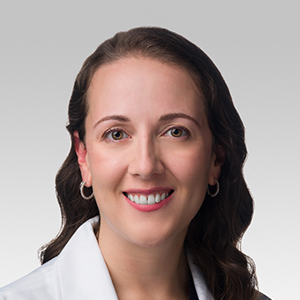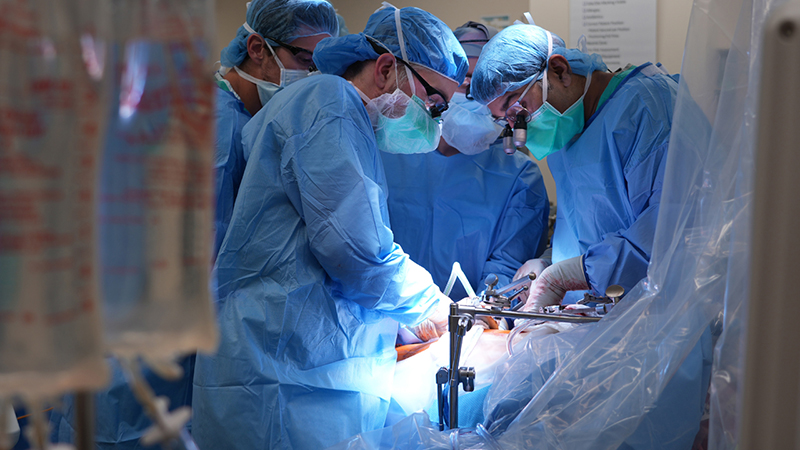Hispanic Movement Disorders Clinic Meets Patients’ Needs
Equitable Care for Those Who Prefer to Speak Spanish
Published March 2023
When it comes to sharing important information about a medical diagnosis, nothing should get lost in translation. That is why Movement Disorders Specialist Paulina Gonzalez-Latapi, MD, started the Northwestern Medicine Hispanic Movement Disorders Clinic within the Parkinson’s Disease and Movement Disorders Center at Northwestern Memorial Hospital.
“Looking at Chicago and the population here, more than 28% of people identify as Hispanic, which is a large number of people — many of whom might be most comfortable communicating in Spanish,” says Dr. Gonzalez-Latapi. “Of course, we can provide care through interpreters, but culturally sensitive care — providing care in a patient’s first and preferred language — can really make a big difference in the outcomes we see.”
Building these relationships with patients makes me think about my family.— Paulina Gonzalez-Latapi, MD
The Hispanic Movement Disorders Clinic opened in April 2022, just about a year after Dr. Gonzalez-Latapi joined Northwestern Medicine. The Spanish-speaking team at the clinic aims to improve their patients’ quality of life by providing the most advanced care and treatments possible, in a way that helps patients feel more comfortable. So far, patients treated at the clinic say it has been very beneficial for them, as they are able to speak without any barriers directly with someone who understands both their language and their culture.
Culturally Sensitive Care
Dr. Gonzalez-Latapi was born and raised in Mexico City, where she attended Panamericana University School of Medicine, an affiliated educational partner of Northwestern University Feinberg School of Medicine. While in school, she began doing research at a Parkinson’s disease clinic. She worked directly with patients and found her passion for helping them gain a better quality of life.
“It is extremely important for me to be able to connect with the Hispanic community — my community — here in Chicago,” says Dr. Gonzalez-Latapi. “I love building strong relationships with my patients. It makes me think about my family. If my family was here, I would want them to be able to see someone who understands their core beliefs and culture, too.”
One patient in particular stands out to Dr. Gonzalez-Latapi. He had been getting care at Northwestern Medicine for some time, but was having a hard time following his care plan and was missing appointments. He was referred to Dr. Gonzalez-Latapi, and the two connected instantly. Dr. Gonzalez-Latapi was able to explain why it was so important that he keep taking his medication as prescribed, even if he felt better.
Since then, he has not missed a single appointment, and now he even brings his wife along. His condition has significantly improved as well. Before, he was barely able to walk, but now he and his wife go on walks together frequently, and his wife notes that he’s generally in a better mood. His family noticed his improvement over the holidays during their celebrations together.
There is no cure for Parkinson’s disease or many of the movement disorders treated at the clinic. However, interventions like medication, and physical and occupational therapy can go a long way to improving a patient’s quality of life. Clinical trials may also be an option for patients with Parkinson’s disease and other movement disorders.
“It is really rewarding to see it finally ‘click’ for a patient when they really understand what is happening with their health,” Dr. Gonzalez-Latapi says. “A lot can get lost in translation when we’re talking about different treatment options, available services and medication directions, so to be able to have these complex conversations, and to know they are being understood, is extremely important to the well-being of our patients.”






